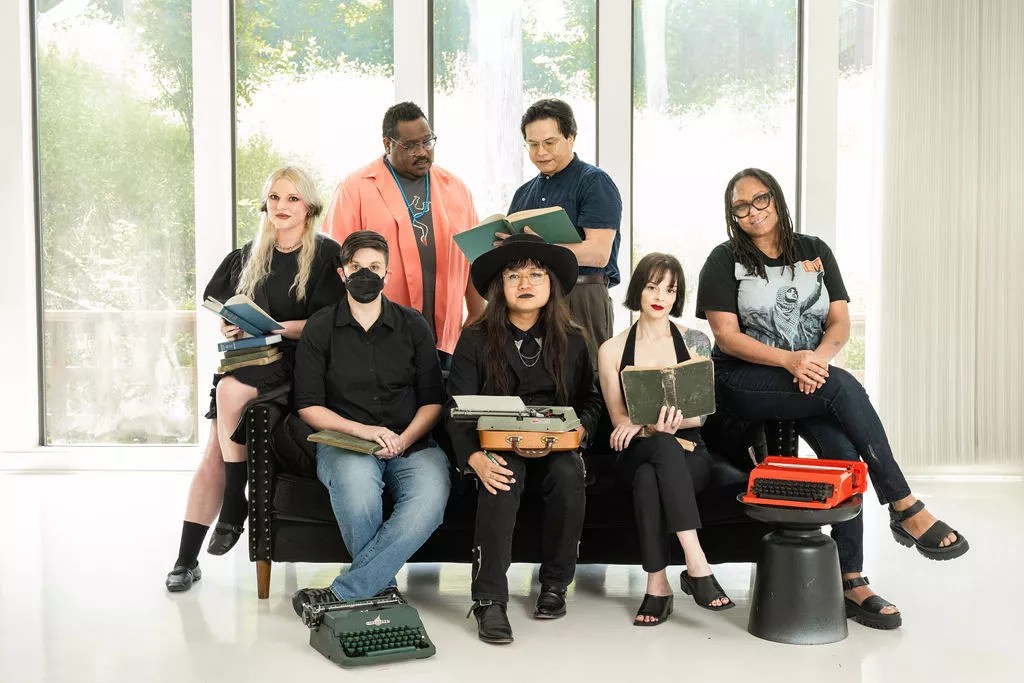
Kathy Tran

Audio By Carbonatix
When strangers meet, social constructs prompt the inevitable dance we know as small talk. In this one-two step of exchanging names, how-are-yous, anecdotes about the weather and what you do for work, it’s possible – though unlikely – that someone will answer the latter question by telling you they’re a poet. You may wonder what it means for that to be someone’s job.
The great Audre Lorde said, “Poetry is not a luxury.” And it is certainly more accessible than ever in the age of social media, but does that make it a financially sustainable profession? Since the 1950s, poetry has continued to fall out of the cultural mainstream. Its shelf space at today’s bookstores has shrunk, and its place in popular magazines has all but disappeared.
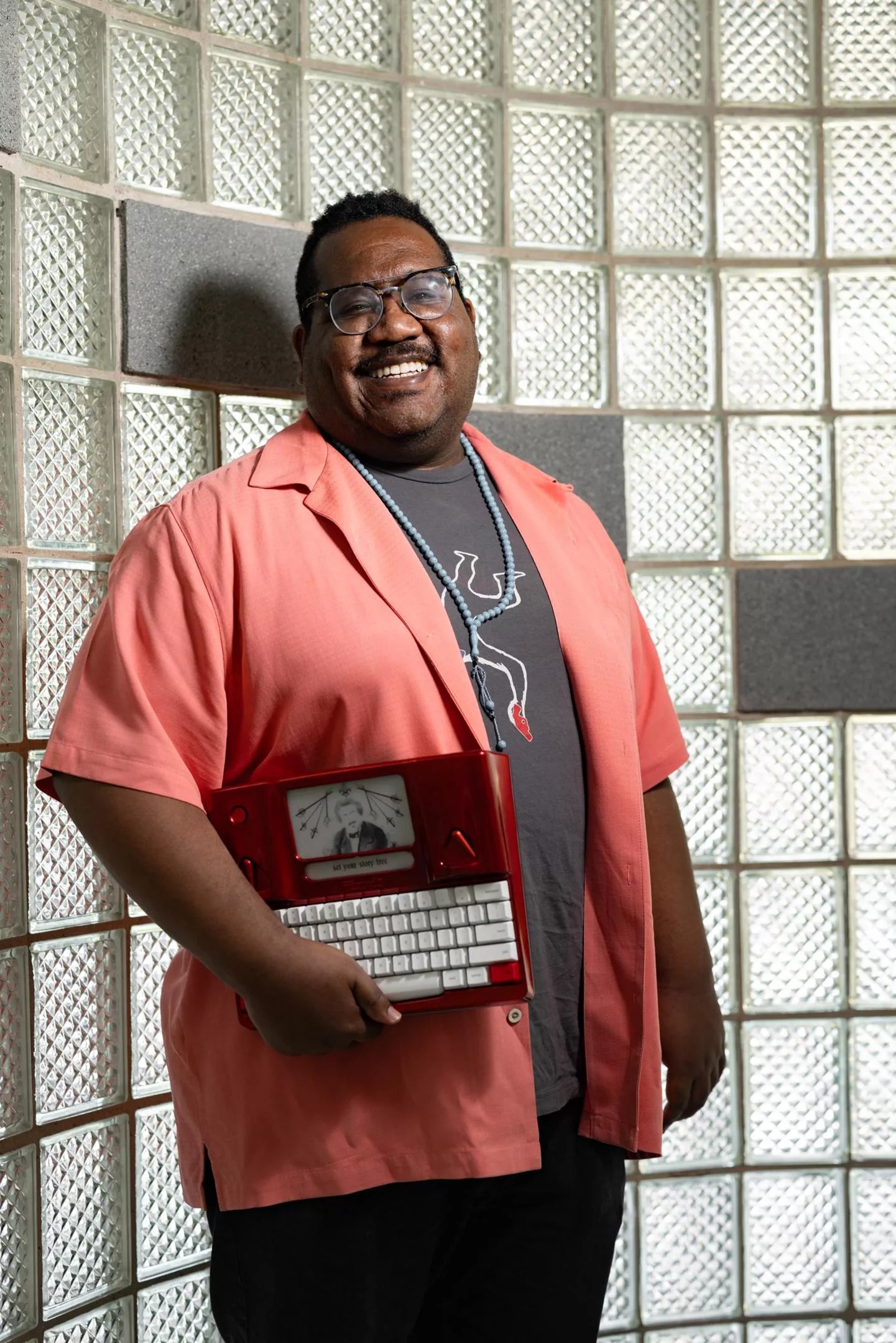
Darryl Ratcliff is a force in the Dallas arts scene.
Kathy Tran
So, how, exactly, does it work to be a writer of poetry by trade? How do the practitioners of an ancient craft turned niche literary genre feed and house themselves in the 21st century? Dallas poet Darryll Ratcliff notes, “Toilet paper isn’t a luxury, but it’s got a price tag too.”
Dallas, make your New Year’s Resolution Count!
We’re $13,000 away from our End-of-Year campaign goal, with just a five days left! We’re ready to deliver — but we need the resources to do it right. If Dallas Observer matters to you, please contribute today to help us expand our current events coverage when it’s needed most.
“No one’s parents wanted them to become a poet, right?” Ratcliff says. “Writers want to figure out the economic part because A, they’re more likely to be successful. And then B, they’re also trying to prove to their parents that they aren’t wasting their lives”
As a longtime figure in Dallas arts and culture, Ratcliff has made something of a Renaissance man of himself. He’s an artist, art critic, event producer, founder of ASH Studios (the once-DIY space he’s grown into an elevated arts destination over the last decade) and an authoritative advocate for local creatives. But he makes most of his money as a fine-arts broker and business manager. He wagers that the most lucrative opportunities for Dallas poets are corporate.
“You can get a performing slot at a corporate conference, and that’s probably going to be your highest-paid gig,” he says. “Literally, they might just want you to read like two poems. And you can get like $2,500 for that, about 15 minutes [of work].”
Dr. Sanderia Faye, acclaimed novelist and seasoned fundraiser for the Dallas literary arts, worked in corporate giving within the finance sector before she started her writing career. “There is money out there,” she says. “It’s about knowing how and where to find it.”
Dr. Mag Gabbert, Dallas’ new poet laureate, teaches poetry at Southern Methodist University. She often finds herself having career-path conversations with students, and what she tells them can be pretty disheartening.
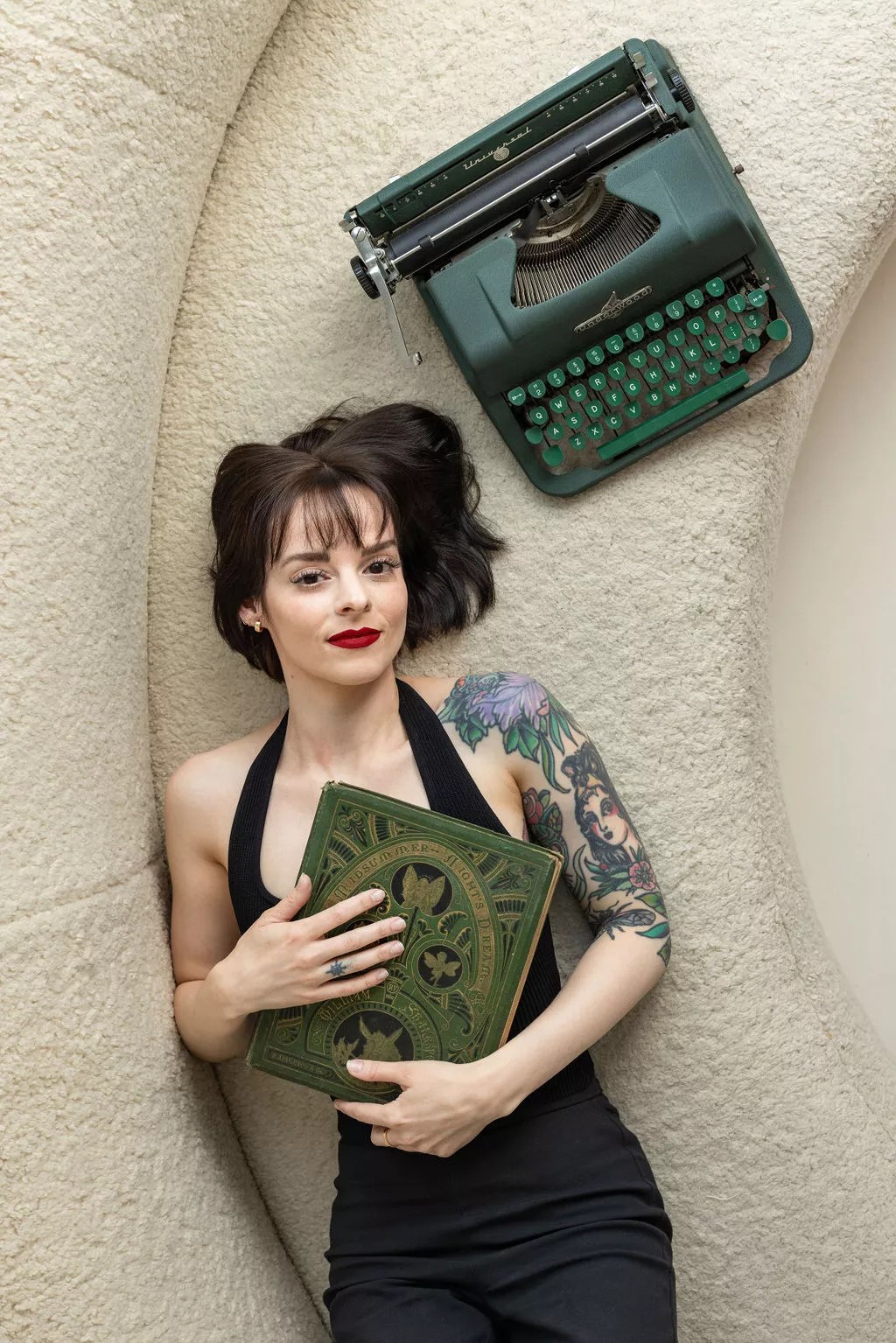
Mag Gabbert is Dallas’ newest poet laureate.
Kathy Tran
“You can be a celebrated, award-winning, well-known poet, and that’s still not going to be the thing that pays your bills,” Gabbert says. “The only people I know who are full-time poets don’t actually write and produce poetry full time. They make their money from teaching or poetry-related speaking gigs, work like that.”
Some pop culture moments in recent years paint the false impression that the poetry industry is thriving. In 2013, Canadian poet Rupi Kaur famously expanded poetry’s potential in the internet age by amassing a fanbase on social media. Her first book was published a year later, and since then she’s sold a combined 12 million copies of her works (according to Simon & Schuster), which have been translated into more than 40 languages.
In 2021, London best-seller Arch Hades became the world’s highest-paid poet when her 648-line rhyming narrative poem “Arcadia” sold for $525,000 at Christie’s New York, setting a record for the most expensive poem ever written. (It was a “nine-minute, 48-second-long abstract animation, soundtracked with ASMR-esque electronic music by musician RAC” sold as an NFT, according to Financial Times.)
But the 2022 National Endowment for the Arts Survey of Public Participation in the Arts study, which surveys 22.4 million Americans every five years about engagement with the arts and letters, reports that only 9.2% of U.S. adults read poetry. In comparison, 48.5% of adults in the U.S. read at least one book of prose per year. The genre’s audience is small.
Despite social media’s short-form packaging advantages and the rising popularity of audiobooks, only 4.8% of adults listen to poetry via broadcast, recording or online streaming. The SPPA report no longer measures the percentage of people listening to poetry at live readings; the number is too small.
Published poet Reverie Koniecki is a K-12 educator in Dallas, and she’s found that she has to make a stronger effort to teach poetry in the classroom.
“I don’t know if it’s just not the cool thing to do for [kids], or if they have other interests,” she says. “I had a creative writing club and we only had four members. But then we did a contest [for the whole student body] and found all these other students who are wonderful writers. But when I’m teaching poetry, they’re intimidated by the poetic structure. They don’t understand it right away.”
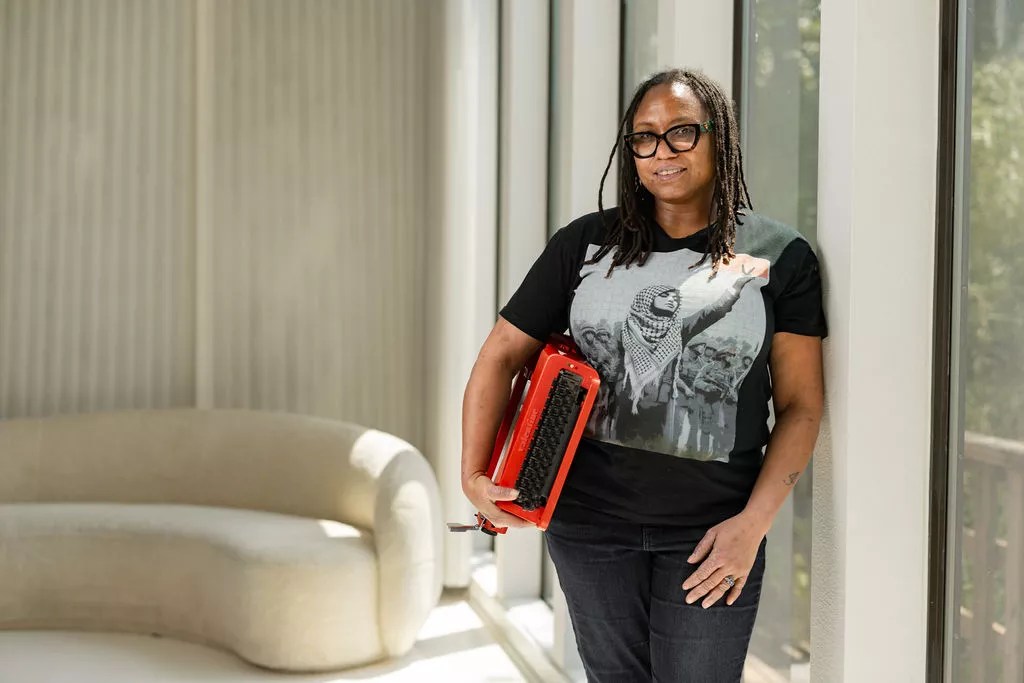
Reverie Koniecki is bringing poetry to Dallas classrooms.
Kathy Tran
Koniecki finds hope for youth interest in poetry, however, by spending the extra time to engage students. “Once we go through it a couple of times. … They do have an appreciation for what the author has done,” she says. “They’ll tell me that they like the poems.”
Young-adult poets outside the academy may not necessarily expect the craft to be profitable. Some may have the ultimate dream of being a full-time poet, but it hardly seems attainable, and some say they’ve accepted that.
Eva Regicide, a 27-year-old trans femme poet, recently entered the poetry scene. The Oak Cliff native writes on a mechanical vintage typewriter that she usually carries with her. During the day, she builds golf simulators for a manufacturing company. On her own time, Regicide writes poetry and performs with a Rocky Horror Picture Show troupe, Los Bastardos. And she’s content to be doing so.
Last year, Regicide started attending readings and reciting her work at The Wild Detectives. The Bishop Arts District bookstore/bar gem has robust poetry programming presented by local organizations such as The Writer’s Garret and Verb Kulture. She enjoys the democratized setting of open-mic events and feels welcomed by the poetry community there.
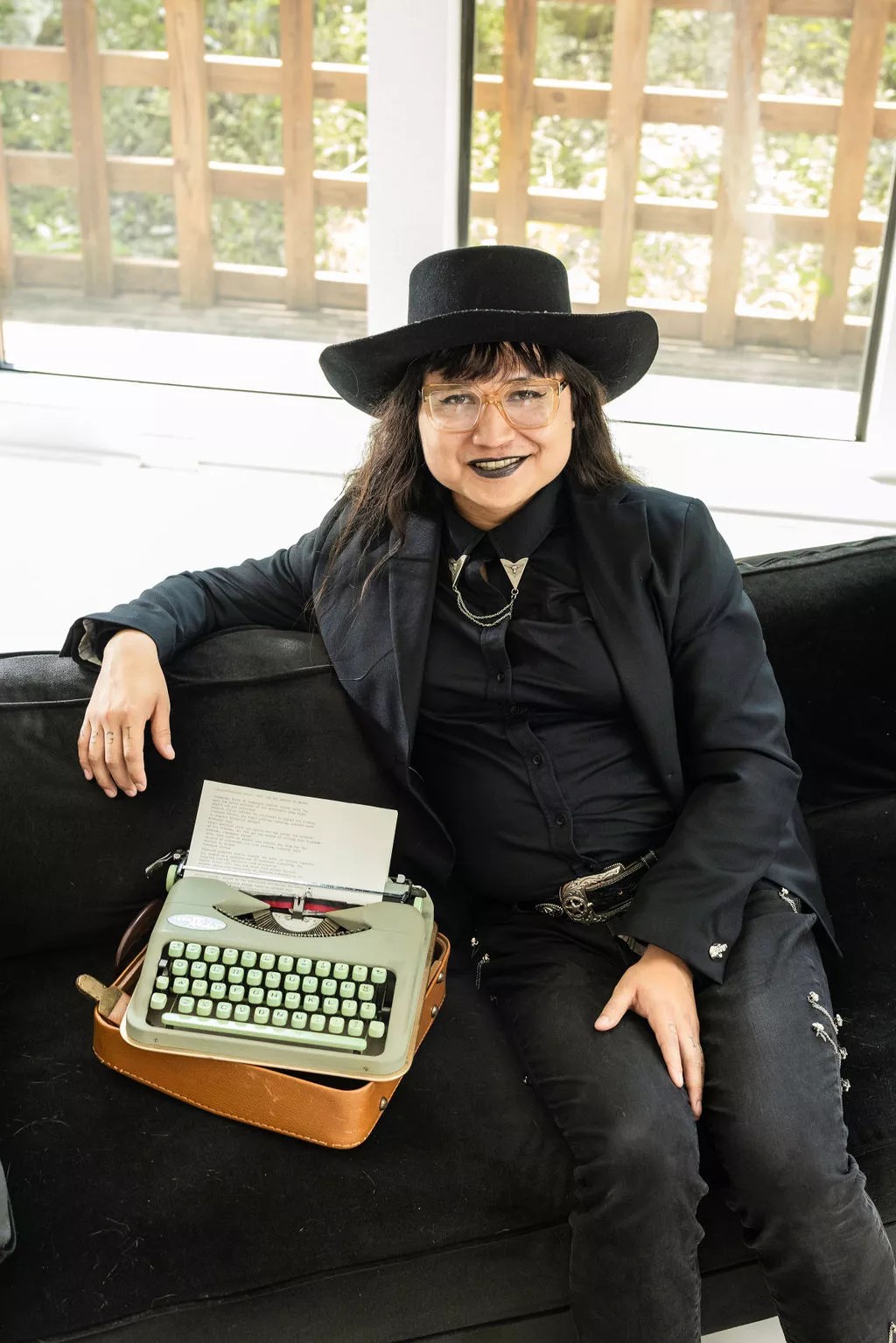
Eva Regicide is a poet, organizer and performer.
Kathy Tran
“It was a little intimidating at first, when I first started reading my poetry,” Regicide says. “I’ve been used to doing burlesque and Rocky Horror, so I had experience performing on stage. But it’s different to be playing a character, rather than sharing something more intimate that almost feels like a piece of you. But it was very exciting at the same time to finally be able to share really personal work with a bunch of people who want to do the same.”
Scarlett Gray is a millennial who’s found an innovative way to integrate their work as a poet into her livelihood. When they worked at The Taschen Library inside Dallas’ The Joule Hotel, they had enough downtime behind the counter to write throughout the day. And when they started creating adult content on the website OnlyFans after work, they turned that income stream into a vehicle for her poetry.
“I’ve always liked film, and people have always told me I could do voice-over work. So I kind of ran with that,” Gray says. “So the main thing that I’ve done on OnlyFans was making explicit films with poetry read over them.”
Gray managed to build a decent following on social media with this work. Many fans of their poetry were originally engaged online with those short-form pornographic films but started keeping up with their literary endeavors on Instagram and even ordering print copies of their self-published poetry zines.
“It’s two different audiences,” Gray says, “because I know some viewers don’t want to hear a poem [over X-rated content]. That’s not what they’re subscribing for. But a lot of people are really into it, and even start conversations with me about certain lines in the poems and ask me to send them more of my poetry stuff.”
This generation may better accept the modern-day reality that subsidizing one’s true calling requires a day job or a piecemeal living wage. Creative types are unsurprisingly creative about making money to survive.
Dallas is trending upward as a burgeoning literature hub with international attention drawn to Will Evans’ work at Deep Vellum Publishing (including a feature profile in The New York Times), the recent establishment of a poet laureate program by the city and a growing annual literary festival. So what can Dallas do for its poets? Because, as they say, they aren’t experiencing much increase in opportunity.
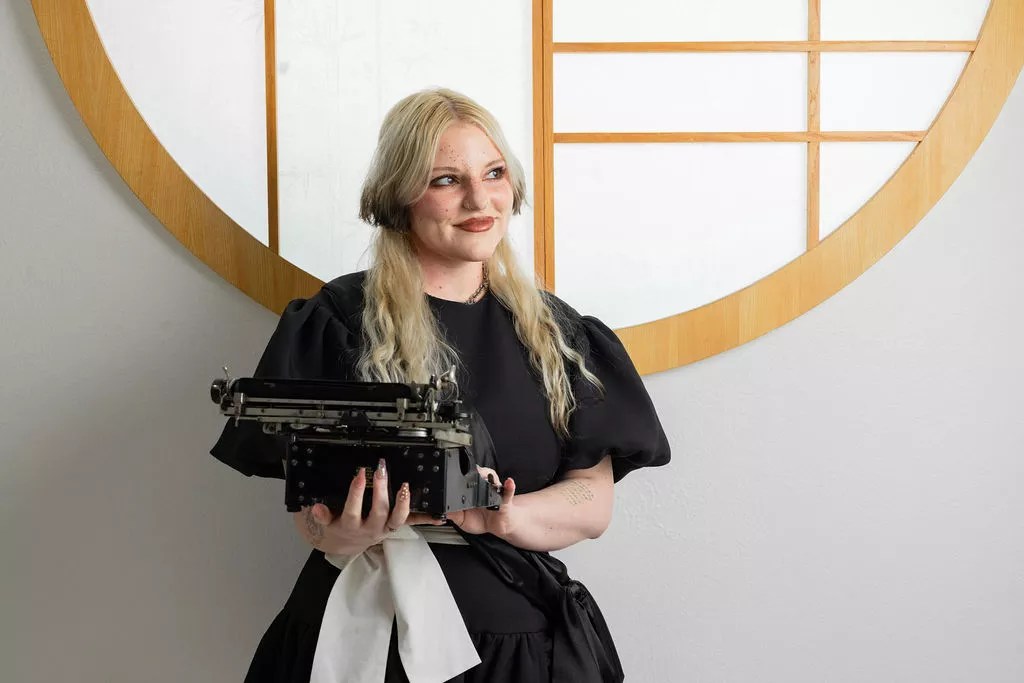
Scarlett Gray is a poet with a substantial online following.
Kathy Tran
Ratcliff proposes practical ideas like unionization and a city-funded poetry prize. He’s finding that poetry readings in places like music venues, where a protocol for paying performers is built into the business model, holds a lot of potential for the sustainability of live events.
Sebastian Paramo, a poetry editor at Deep Vellum, believes Dallas is actually losing poets, who are often forced to leave the city because there are no postgraduate college poetry programs in Texas that provide students with a financial stipend.
“I grew up in Garland, but I ended up going to Sarah Lawrence College for my MFA,” Paramo says. “And there are other people that I know from here that end up going to a different city to study creative writing, you know, when it could be something that they could do in their backyard and promote the stories and lore of Dallas, which I think is very much needed in the field of poetry.”
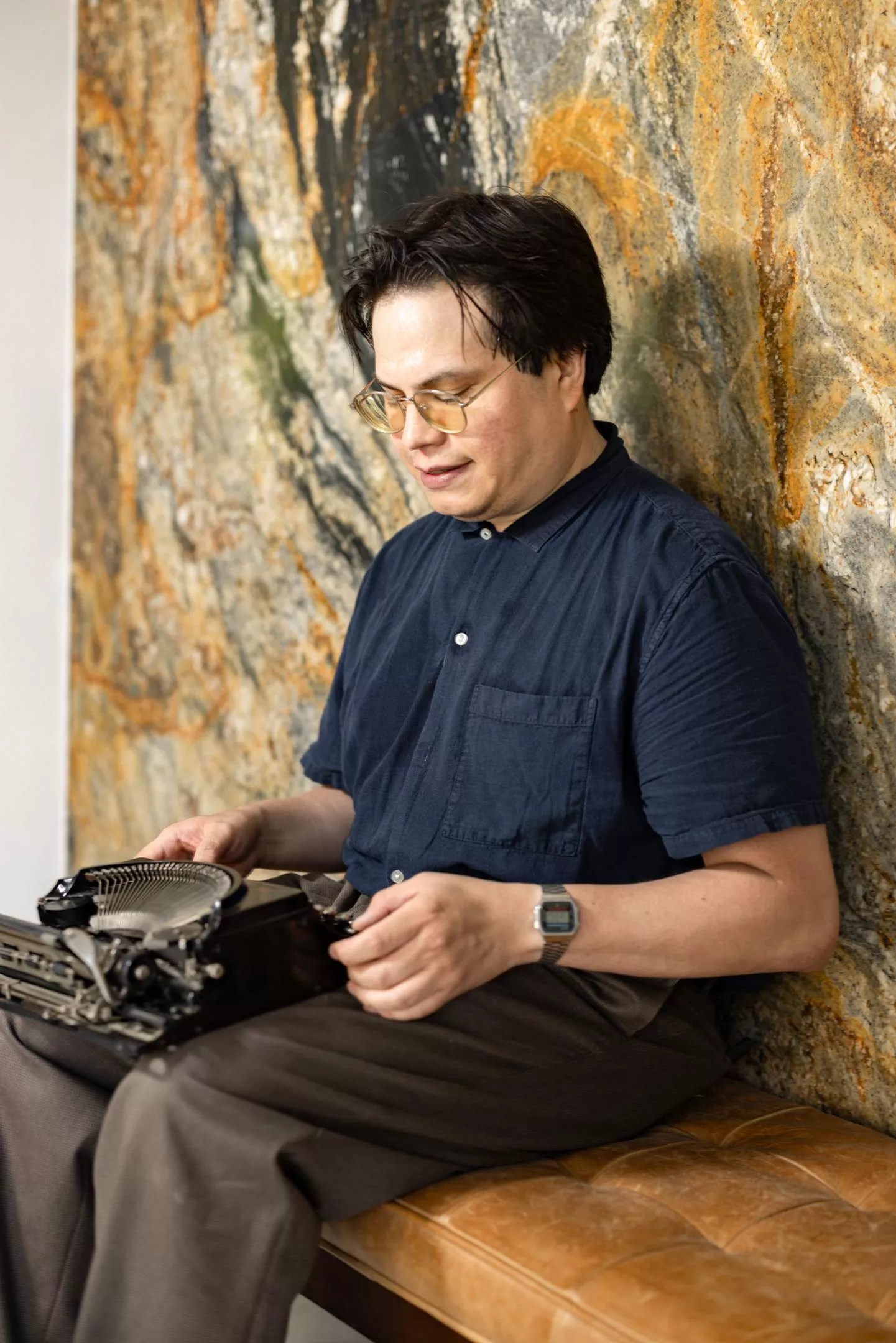
Sebastian H. Paramo is one of Dallas’ most active poets.
Kathy Tran
On the idea of leaving Dallas because of literary aspirations, local icon and National Endowment for the Arts Master Poet Rawlins Gilliland values the determination it takes to stay.
“In the 1990s I could have lived anywhere in or out of Dallas,” he says. “But I wanted the racial and ethnic working-class harmony I had built for myself in a part of my hometown that others eschewed. Today I am 79 years old on a fixed income, yet able to actively be the occasionally starving poet I grew up here to be. … None of this was mine by leaving home.”
By far the most accessible resource for poets in Dallas is the city’s poet laureate office at J. Erik Jonsson Central Library. Most people don’t realize that the new role is more than honorary – it’s intended to serve the public as well.
Gabbert holds office hours at the library every Wednesday starting at 2 p.m., when any Dallasite can walk in to seek her insight on topics like career guidance and navigating submission opportunities. If you bring in your own poems for her to review, she’ll even provide you with a constructive critique session.
Faye finds the lack of resources for poets in Dallas even more difficult to contend with for Black writers. But outside of traditional publishing models and the often exclusionary world of fine-arts academia, Dallas’ rich spoken word and slam poetry scene was built up for and by underrepresented Black voices in the literary community.
Slam poet Ashley Davis hosts the monthly event FluidFridays, the largest LGBTQIA+ open mic night in Dallas, and she believes that spoken word is often overlooked in the world of poetry.
“I can’t speak for the entire scene; however, I think even in the literary community there is division,” says Davis, who writes and performs under the name C.R.U.S.H. “For a while now, the slam poetry scene has been heavily participated in by people of BIPOC communities. We have often heard that our stories are ‘too intense’ or ‘too vulgar’ to be in certain spaces. So slam poets continue to spill their passion and vulnerability on the stages of businesses and people who understand our stories.”
Overall equity, access and inclusion in the capital-P poetry world is still a substantial need in Dallas and cities all over the world for people of color and other disenfranchised populations facing barriers to entry in the arts.
“I think it’s important, especially for someone like me [Dallas poet laureate], who has access to some measure of resources, to be in conversation with historically marginalized poets,” Gabbert says. “I can’t claim that I have the answers to solve issues around inclusivity, because I have white privilege. I’m a straight white woman. But I think the people who do have the answers we need are right here in this town.”
The city’s first poet laureate, appointed in 2021, was author and educator Joaquin Zihuatanejo, who works extensively in Dallas but was based in Denton. This drew criticicism from other figures in the literary scene, not for Zihuatanejo’s extensive credentials, but for the city’s inability to house its own, official, representatives in the arts (assuming this was a factor).
Gilliland, whose face adorns a large mural in Deep Ellum, where his poetry is also found on street art, takes commissioned work, or he might be found at a pop-up in Leyla’s Bakery, writing special-occasion poems for Mother’s Day.
“I believe the arts are all kin,” Gilliland says. “Whereas Dallas has long been a musical destination, and visual art is everywhere one looks … it is only natural that Dallas now embraces the multitude of people who live here. Painting with words in any form is an integral part of who we are.”
The medium of poetry is a labor of love and an inherent calling. But in the 21st century, there’s a rapidly diminishing place in the world (and station in life) for the artists who create it. One has to wonder whether, in the end, the challenges of making poetry are ultimately worth it.
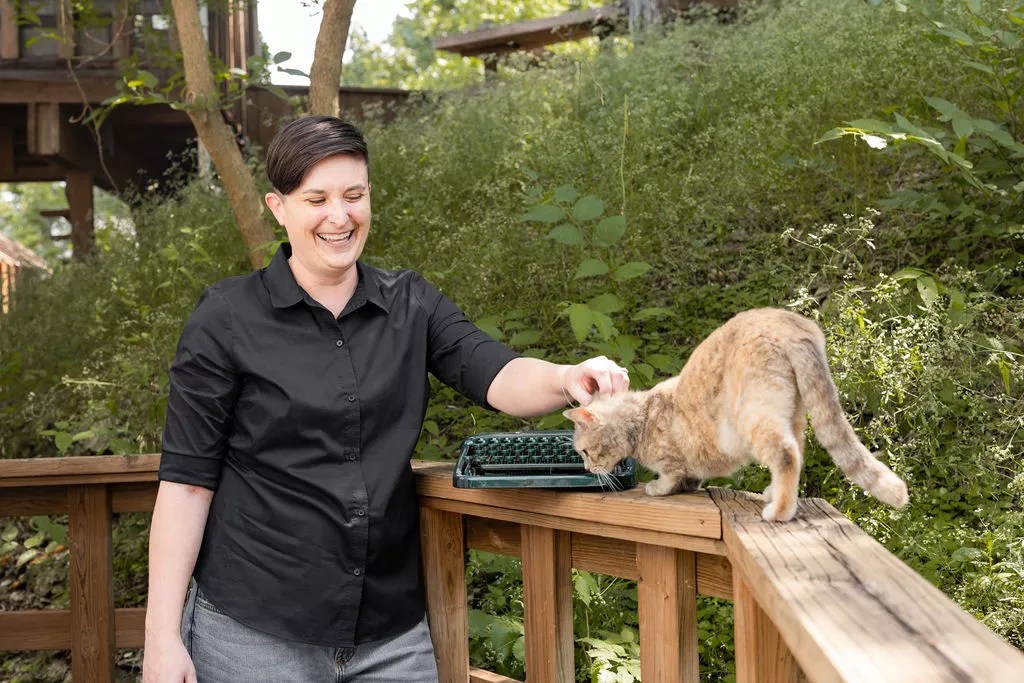
Dallas poet Logen Cure.
Kathy Tran
But for Dallas poets, there’s no question about it. Scarlett Gray and Eva Regicide will continue their work in poetry even if they never see it deliver financial returns. Sebastian Paramo believes it’s important to hold onto one of the world’s oldest professions. Daryll Ratcliff thinks poetry is truly the most accessible form of creation because all it requires is to feel or observe something. One of his favorite things to do on a night out for drinks is wrangling friends into writing spontaneous poems with him on cocktail napkins.
In eloquent and simple terms, Dallas’ Logen Cure – English professor, poetry podcaster and hosting founder of The Wild Detectives’ monthly reading “Inner Moonlight” – says that she will keep writing poetry whatever the financial payoff might be.
“I consider being a poet part of my identity,” Cure says. “I’ve been a poet all my life and will be a poet regardless of how I pay the bills.”